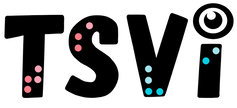- Home
-
VI Basics
-
Eligibility
- VI Referrals >
- Medical Vision Exam >
- Visual Diagnosis >
-
FVLMA
>
- FVLMA & Service Printables
- Conducting a FVLMA
- What is the FVLMA
- Environmental Observations
- Student Observations
- Interviews
- Assessment Kit Materials
- Oculomotor Skills
- Near Visual Acuities
- Print Comparisons
- Distance Acuity
- Test Visual Fields
- Vision Skills
- Learning Media Assessment
- Reading Rates
- Writing the FVE Report
- Other Evaluations >
-
Service
- ECC Annual Needs
- Service Plans >
- Goals & Objectives >
-
Adaptations
>
- Accommodations & Modifications
- School Campus Adaptations
- Playground Adaptations
- Movies & Assemblies
- Classroom Design Tips
- Adjust Lighting
- Label Classroom
- Board Work (Chalk, Interactive, White)
- Morning Meeting
- Lectures & Instruction
- Accessible Educational Materials
- Photocopying
- Font Legibility
- Increase Contrast
- Pictures and Worksheets
- Large Print
- Accommodations for VI
- Accessible Content for BLVI
- Collaboration >
-
Instruction
>
- Material Preparation
- Virtual Instruction
- Development of ECC Resources
- Teaching the ECC
- Teaching in Thematic Units
- Instructional Strategies
- iPads as Instructional Tools
- Standard Course of Study Strategies & Activities
- The Art of Teaching the ECC
- Activities to Teach the ECC
- Virtual & F2F Strategies
- Found of Teaching the ECC in the Age of Virtual Instruction
- Complete Set Bonus >
-
Themes
>
- Using Themes to Teach the ECC
- Back to School
- Birthday's and Aging
- Self & Identity
- Pets & Service Animals
- Family & Geneology
- Apples & Orchard
- Autumn & Home Maintenance
- Pumpkins & Farms
- Costumes & Candy
- Politics & Voting
- Grocery Stores
- Meal Preparation & Thankfulness
- Shopping & Clothing Care
- Christmas & Gift Giving
- Clocks, Time, New Year
- Resolutions & Healthy Habits
- Wintertime
- Cold & Flu Season
- Adapted Sports & Paralympics
- Valentines Love & Friendship
- Severe Weather Unit
- Stay Safe
- Home & Spring Cleaning
- Springtime & Easter
- Gardening
- Communication & Post Office
- Hygiene & Grooming Unit
- Transportation
- Jobs & Employment
- Graduation & Life Changes
- The Great Outdoors
- Vacations & Travel
-
ECC
-
Compensatory
>
-
VI Assistive Tech
>
- VI AT Printables
- Selecting the Right AT
- Overview of Assistive Technology
- Low/Medium Tech Devices for Tactual Learners
- Non-Optical Low Vision Devices
- Optical Devices for Near
- Optical Devices for Distance
- Making the iOS Device Accessible
- VoiceOver
- iOS Accessibility Resources
- Screen Magnifiers & Readers
- Magnifier Apps
- Keyboarding Instruction
- Word Processing and Shortcuts
- Navigate Computer without a Mouse
- Video Magnifiers
- Video Magnifier Instruction
- Braille Technology
- Notetaker Instruction
- Auditory Access Devices
- Accessing Audio Books
- Apps to Access Books
- Apps for VI
- VI AT Resources
- Social Skills >
- Self Determination
-
Sensory Efficiency
>
-
Independent Living
>
- Responsibility & Independence
- General Home Safety
- Bathroom Adaptations
- Hygiene & Grooming
- Medication Adaptations
- Dramatic Play
- Dressing & Clothing Identification
- Clothing Management
- Housekeeping Maintenance
- Eating Adaptations
- Mealtime Independence
- Kitchen Adaptations
- Food Preparation
- Recipe Activities
- Money
- Orientation & Mobility >
- Recreation & Leisure >
- Career & Vocational >
-
Compensatory
>
- VI Store
- Jobs
Organization & Study SkillsBy: Carmen Willings
teachingvisuallyimpaired.com Updated June 9, 2019 Students in school are expected to know and implement organizational strategies and skills in order to manage their materials and be able to retrieve assignments. For this reason, it is important for students who are blind or have visual impairments to organize and care for the special tools and materials that they use. Organization skills are important skills to work on early to best prepare the student for their academic career as well as their future job/career. Obtain Own Belongings It is important to encourage the student to obtain their own belongings and take responsibility for independently storing and retrieving personal items when prompted (e.g. books, lunch, gym shoes, coat, etc.). Although it may be tempting to want to speed up the process or help the student, it is important for the student to obtain their own belongings. This not only helps the student learn where items belong but also helps teach the student responsibility. Using a consistent and accessible labeling system throughout the classroom will assist students in locating materials.
Arrange and maintain personal spaces It is important for all students, but particularly students with visual impairments to maintain the organization of their school materials. Maintaining an organized space will reduce visual clutter, keep materials from getting damaged, and will make the retrieval of materials easier. Encourage the student to arrange and maintain their own personal spaces (cubbies, lockers, backpacks, and desks). All students need to learn to keep their areas organized. This will help the student locate needed materials and will also prevent materials from getting damaged. Students will need to label and mark their materials in a system that works for them and is accessible (using large print, braille, or tactual/picture labels).
School LockerUse adapted lock for securing school locker. A combination lock can be challenging even for sighted students. Using a key and lock is probably the easiest lock for students to manage, but others are available and the student's unique needs should be considered.
Maintain Notebooks, Binders, & MaterialsSetup/maintain notebooks and binders by adding large print or braille labels. By labeling materials with labels, the student will be able to quickly locate the needed notebook or binder. A color coding system works well for some students, but not for all. Consider each student's unique visual and learning needs when helping the student set up a system.
It is also important for the student to organize and maintain their materials and supplies by adding large print and/or braille labels to them. Similar to labeling binders and notebooks, labeling containers that store materials will help ensure that things will be put back in the same spot. Also, placing the student's name on their items will help them stay on top of what belongs to them. Maintain Personal Address, Directories & PasswordsHelp the student maintain a personal address/phone directory and passwords. In this day and age, most people store their contacts in their smartphones, however, it is still ideal to have a back-up location for storing addresses and phone numbers. Whether a student uses electronic means or large print or braille, the student needs to create an organized system that they can easily retrieve information independently. Students will also need to have a location and system for storing usernames and passwords for any online accounts.
Care for Assistive Technology Encourage the student to take care of equipment and assistive devices in personal possession. Assistive technology devices can be very expensive. Whether the materials have been purchased by the family or by the school, the student needs to learn the importance of taking care of the materials. This includes cleaning the materials when they get dirty, storing them properly, and transporting them safely. The student also needs to learn how to problem solve when something goes wrong with any equipment. Who should they contact? Can they fix it safely on their own?
Utilize tools for OrganizationUtilize tools to organize papers (e.g., stapler, paper clips, notebook binders, pocket folders, index tabs, etc.). Students who are visually impaired or blind cannot casually observe how others may use tools to organize their supplies and may need direct instruction and practice in how to operate the tools in order to use them safely and effectively. Students also need to be instructed in which tool is the best to perform a specific job.
Access Reference/Resource MaterialsSkills in reading resource materials should be practiced so the student will be prepared to use them in class.
|
Compensatory SkillsConcept Development
Alternative Communication
Emergent Literacy
Access Print
Pre-Braille
Braille Code
Braille Formatting
Braillewriter
Slate & Stylus
Tactile Graphics
nemeth code
Access Classes
Abacus
Organization
Study Skills
Time Management
Listening Skills
|
|
Teaching Students with Visual Impairments LLC
All Rights Reserved |
- Home
-
VI Basics
-
Eligibility
- VI Referrals >
- Medical Vision Exam >
- Visual Diagnosis >
-
FVLMA
>
- FVLMA & Service Printables
- Conducting a FVLMA
- What is the FVLMA
- Environmental Observations
- Student Observations
- Interviews
- Assessment Kit Materials
- Oculomotor Skills
- Near Visual Acuities
- Print Comparisons
- Distance Acuity
- Test Visual Fields
- Vision Skills
- Learning Media Assessment
- Reading Rates
- Writing the FVE Report
- Other Evaluations >
-
Service
- ECC Annual Needs
- Service Plans >
- Goals & Objectives >
-
Adaptations
>
- Accommodations & Modifications
- School Campus Adaptations
- Playground Adaptations
- Movies & Assemblies
- Classroom Design Tips
- Adjust Lighting
- Label Classroom
- Board Work (Chalk, Interactive, White)
- Morning Meeting
- Lectures & Instruction
- Accessible Educational Materials
- Photocopying
- Font Legibility
- Increase Contrast
- Pictures and Worksheets
- Large Print
- Accommodations for VI
- Accessible Content for BLVI
- Collaboration >
-
Instruction
>
- Material Preparation
- Virtual Instruction
- Development of ECC Resources
- Teaching the ECC
- Teaching in Thematic Units
- Instructional Strategies
- iPads as Instructional Tools
- Standard Course of Study Strategies & Activities
- The Art of Teaching the ECC
- Activities to Teach the ECC
- Virtual & F2F Strategies
- Found of Teaching the ECC in the Age of Virtual Instruction
- Complete Set Bonus >
-
Themes
>
- Using Themes to Teach the ECC
- Back to School
- Birthday's and Aging
- Self & Identity
- Pets & Service Animals
- Family & Geneology
- Apples & Orchard
- Autumn & Home Maintenance
- Pumpkins & Farms
- Costumes & Candy
- Politics & Voting
- Grocery Stores
- Meal Preparation & Thankfulness
- Shopping & Clothing Care
- Christmas & Gift Giving
- Clocks, Time, New Year
- Resolutions & Healthy Habits
- Wintertime
- Cold & Flu Season
- Adapted Sports & Paralympics
- Valentines Love & Friendship
- Severe Weather Unit
- Stay Safe
- Home & Spring Cleaning
- Springtime & Easter
- Gardening
- Communication & Post Office
- Hygiene & Grooming Unit
- Transportation
- Jobs & Employment
- Graduation & Life Changes
- The Great Outdoors
- Vacations & Travel
-
ECC
-
Compensatory
>
-
VI Assistive Tech
>
- VI AT Printables
- Selecting the Right AT
- Overview of Assistive Technology
- Low/Medium Tech Devices for Tactual Learners
- Non-Optical Low Vision Devices
- Optical Devices for Near
- Optical Devices for Distance
- Making the iOS Device Accessible
- VoiceOver
- iOS Accessibility Resources
- Screen Magnifiers & Readers
- Magnifier Apps
- Keyboarding Instruction
- Word Processing and Shortcuts
- Navigate Computer without a Mouse
- Video Magnifiers
- Video Magnifier Instruction
- Braille Technology
- Notetaker Instruction
- Auditory Access Devices
- Accessing Audio Books
- Apps to Access Books
- Apps for VI
- VI AT Resources
- Social Skills >
- Self Determination
-
Sensory Efficiency
>
-
Independent Living
>
- Responsibility & Independence
- General Home Safety
- Bathroom Adaptations
- Hygiene & Grooming
- Medication Adaptations
- Dramatic Play
- Dressing & Clothing Identification
- Clothing Management
- Housekeeping Maintenance
- Eating Adaptations
- Mealtime Independence
- Kitchen Adaptations
- Food Preparation
- Recipe Activities
- Money
- Orientation & Mobility >
- Recreation & Leisure >
- Career & Vocational >
-
Compensatory
>
- VI Store
- Jobs

